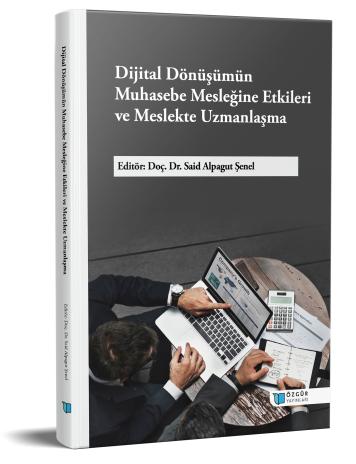
Artificial Intelligence Applications in Fraud Detection: The Role of ChatGPT and Model Comparisons
Chapter from the book:
Şenel,
S.
A.
(ed.)
2025.
The Effects of Digital Transformation on the Accounting Profession and Specia-lization in the Profession.
Synopsis
Accounting fraud is a significant risk factor that poses a major threat to financial reporting processes and causes substantial harm to global economies. In recent years, large-scale accounting scandals have necessitated the enhancement of audit processes and the development of more robust fraud detection models. Traditional fraud detection methods rely on predefined rules and financial ratios, yet they often prove insufficient in addressing the evolving nature of fraudulent activities. In this context, artificial intelligence (AI) technologies are gaining increasing attention in the detection of accounting fraud.
This study presents a specialized accounting fraud prediction model built on ChatGPT-4o, developed by OpenAI. The model was trained using the financial data of companies listed in the Watchlist Market of Borsa Istanbul (BIST) for the period 2013-2022 and tested to generate fraud predictions for the year 2023. During the training phase, the AI model was provided with comprehensive information on the Beneish Model, financial manipulation techniques, and accounting fraud patterns. The model’s analytical capabilities were refined through an interactive question-and-answer approach to enhance its learning process.
To evaluate its performance, the predictions generated by the AI model were compared with the M-score values calculated using the Beneish Model for 2023. The results indicate that the ChatGPT-4o-based model demonstrated a certain level of consistency in identifying firms at risk of financial manipulation. However, rather than providing definitive judgments, the model adopted a probability-based approach, analyzing financial trends over time to make fraud predictions. A strong correlation was observed between the model’s predictions and traditional Beneish Model calculations.
This research aims to assess the applicability of artificial intelligence in accounting fraud detection and examine its potential role in financial analysis processes. The findings suggest that AI-based prediction models can serve as a valuable complementary tool to traditional fraud detection methods. Looking ahead, expanding the training of AI models with larger datasets may enable their more active integration into financial auditing processes.

